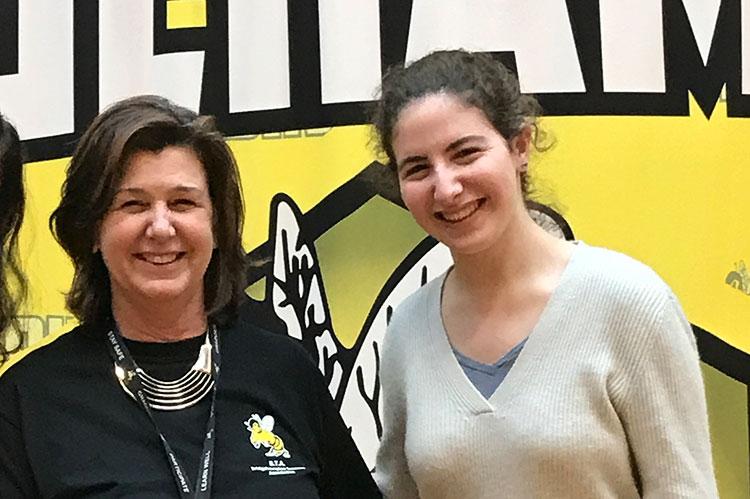As a student at the Bridgehampton School, Madeline Grabb quietly earned a reputation for her intellect, generosity, thoughtfulness, and sense of humor. She graduated as class valedictorian earlier this year, and decided to take a gap year rather than head straight to college.
It's fair to say she has invested her time smartly in recent months, taking part in a research competition known as the World Food Prize. After developing a dissertation and defending it (virtually) before a panel of professors and experts with Cornell University and the New York Youth Institute, Ms. Grabb has advanced to the international level of competition — one of 200 young delegates from across the globe vying for the prize.
As a starting point, students from around the world choose to study a particular nation that faces hardships related to food, and they come up with theoretical solutions to those problems. Ms. Grabb chose Pakistan, drawn to it after she learned from Unicef that 44 percent of girls ages 5 to 16 there do not attend school and that food insecurity is often directly connected to the lack of educational opportunities for women and girls.
"I decided I wanted to delve deeper into that," Ms. Grabb said. Among her challenges was being sensitive to cultural norms in Pakistan and the idea that solutions also had to be palatable to men and religious leaders there.
She developed three ideas for fighting malnutrition in Pakistan, where, she said, 68 percent of the population suffers from anemia. One of her solutions was to introduce freekeh, a roasted grain made from young wheat that contains lots of calcium, iron, and zinc, into the Pakistani diet. "If mothers were to get more nutrients throughout their pregnancy, it would give their babies a better chance of being born at a healthy weight and less vulnerable to malnutrition and disease," Ms. Grabb wrote in her paper.
Another one of her ideas was to encourage more breastfeeding. "A recent report found that only 18 percent of Pakistani mothers carry out 'early initiation breastfeeding,' but what many do not know is that this step makes the babies 14 times more likely to survive," Ms. Grabb wrote. "Additionally, approximately 97 percent of the Pakistani population practices Islam, and their religious text, the Koran, supports breastfeeding."
Another big-picture solution, she wrote, is to further education in general for girls and women. "If women can stay in school, they can get jobs and contribute to household incomes, which can reduce all forms of malnutrition," Ms. Grabb said in an interview.
In her research paper, she quoted a proverb often attributed to James Emmanuel Kwegyir Aggrey (1875-1927), a teacher and missionary: "If you educate a man, you educate an individual, but if you educate a woman, you educate a nation."
"Madeline leads by example," said Judiann Carmack-Fayyaz, a longtime teacher of technology and agriculture at the Bridgehampton School. "It is her thoroughness, attention to detail, humorous comebacks, and knowledge that make her a definitive leader. She has an impeccable reputation for being right, just, and impartial. . . . I am thrilled that Madeline was chosen to represent the New York Youth Institute at the World Food Prize. She is very deserving of the honor."
Ms. Grabb said she feels lucky to have grown up in a supportive environment with strong female role models, including her mother, Sarah Stenn, her sister Samantha, and Ms. Carmack-Fayyaz.
"I've never been made to feel like there's any way I deserve less or accomplish less if I work as hard as my male counterparts," Ms. Grabb said. "Hard work is what it takes, but knowing that that's not how it is for girls in other countries is such an injustice, and I think it's something that as a society we have to work on."

